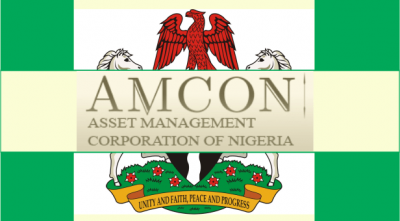Ernst & Young, CBN, NDIC push for AMCON’s liquidation
Ernst & Young, (multinational financial advisory firm), the Central Bank of Nigeria (CBN) and Nigeria Deposit Insurance Corporation (NDIC) are pushing to end the operation of the Asset Management Corporation of Nigeria (AMCON), The Nation learnt yesterday.
AMCON Managing Director/CEO, Ahmed Kuru, said AMCON is working with the three institutions to “tinker things a little and then at certain point in time liaising with the National Assembly to draw a line.”
Speaking during a retreat with members of the House Committee on Banking and Currency in Lagos, Kuru said: “My suggestion will be to put all the remaining debt in one vehicle and fling the vehicle to anybody or firm that wants to buy with considerable discount. At that stage maybe it would be wise to do that and then close AMCON. There are funds all over the world that are in search of such opportunity. Then the contributions into the sinking fund from the banks, NDIC and CBN would over the period of two or three years depending on how the rates are adjusted be gradually cleared.”
The AMCON boss said the corporation raised its N5.6 trillion take-off capital from bonds it issued at six per cent for a discounted value of N4.042 trillion (face value of N5.6 trillion) for the acquisition of Non-Performing Loans (NPLs) and the recapitalization of Eligible Financial Institutions (EFIs).
The AMCON chief said another cash of N500 billion was from Central Bank of Nigeria (CBN) at three per cent annual interest rate, payable in 2021 and another N10 billion share capital contributed equally by the Ministry of Finance and the CBN.
Kuru challenged the lawmakers to consolidate on the gains of the previous National Assembly, said it is in the interest of the Nigerian economy to recover the debt because it was not established as a charity organisation.
He said AMCON purchased 12,743 NPLs or EBAs worth N3.8 trillion from 22 Eligible Financial Institutions (EFIs) for a purchase price of N1.8 trillion. The purchased are covered by various collaterals. AMCON also capitalizes three EFIs and provides financial accommodation to five. The corporation, he added had to inject a total sum of N2.2 trillion to 10 banks – bridged and owned banks (intervened banks) – bringing Net Book Value (NAV) to Zero.
AMCON he added bought 12,743 Eligible Bank Assets (EBAs) but has so far resolved about 4,000 EBAs while more than 8,000 EBAs are still outstanding just as it mapped out about 6,000 accounts to its Asset Management Partners (AMPs), which has significantly improved recoveries. However, 71 of the EBAs are currently under receivership.
Also, the Federal House of Representatives Committee Chairman on Banking and Currency, Hon. Victor Nwokolo has assured Nigerians that the 9th National Assembly would take all necessary measures that would support AMCON in realizing the huge outstanding debt of over N5.4 trillion owed it by obligors before its sunset.
Recall that AMCON with the assistance of the 8th National Assembly successfully amended the AMCON Act, which President Muhammadu Buhari signed into law earlier in the year. The amended Act further provided AMCON with additional powers to deal with the obligors.
Since government is a continuum, Nwokolo affirmed that the National Assembly through the committee, which has oversight mandate over AMCON would work to ensure that AMCON not only performs its function satisfactorily, but ensures that the corporation delivers on its expected mandate given that AMCON is a creation of the parliament in 2010.
He said the National Assembly will continue to amend the AMCON Act until the Federal Government achieves that target for which AMCON was created in the first place, which is to stabilize the financial sector.
Given that the AMCON Act has been amended and already signed into law by President Buhari, Nwokolo said the national assembly will continue to strengthen the laws of the country on enforcement. He said enforcement has become critical given the tactics of the debtors, which has constrained AMCON from achieving optimum results especially since public funds were used to buy these loans that helped prevent systemic collapse of the banking sector in Nigeria at the time AMCON was created in 2010. (The Nation)


